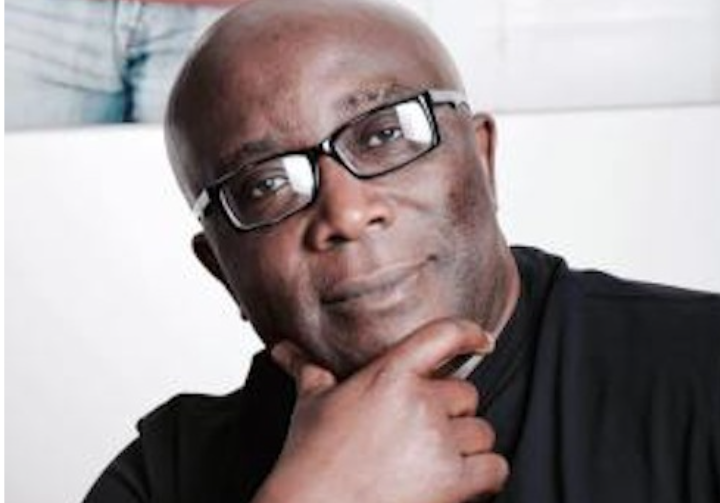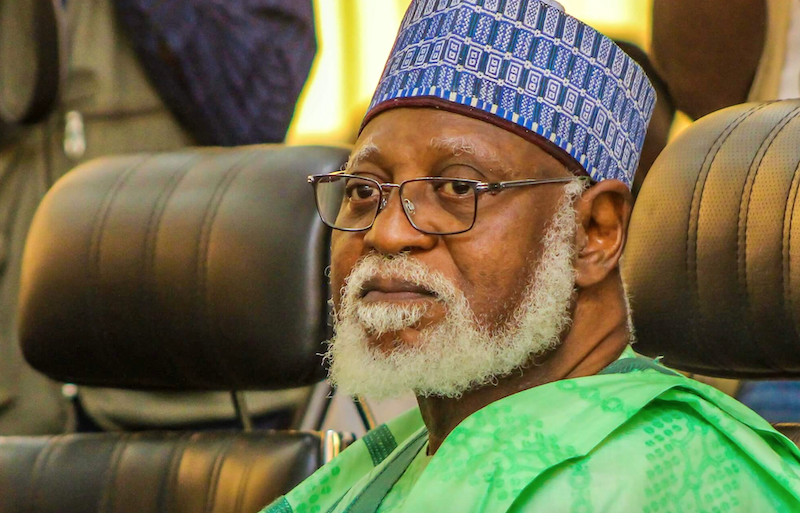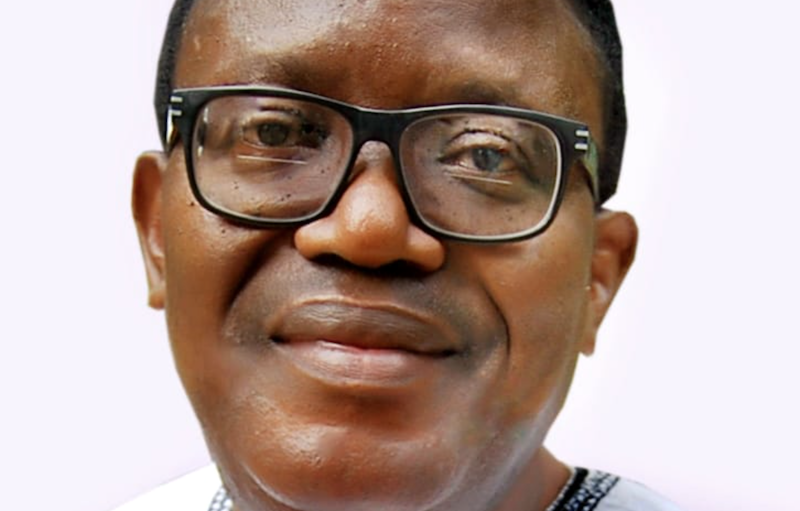Democracy thrives on transparency, accountability, and the rule of law. The legislature, as the guardian of democratic governance, plays a crucial role in lawmaking, budget approval, and oversight. These functions ensure that government policies align with the public interest, resources are allocated equitably, and the executive remains accountable. However, legislative corruption, particularly the exchange of money for legislation, undermines democracy, distorts policymaking, and erodes public trust in governance. Corruption in the legislature is a reduction of the sanctity of the legislature itself and a reduction of its credibility.
In Nigeria, the escalating issue of legislative corruption is a cause for immediate concern. Public confidence in government institutions is rapidly eroding as lawmakers are perceived to prioritize personal gain over national development. At a recent Investors roundtable convened by the office of the Vice President, concerns were raised about the National Assembly’s obstructive stance towards business. Similarly, at a civil society gathering, participants alleged that the 10th National Assembly trades freely in legislation and legislative approval.
Recent allegations, such as the 2025 Budget Scandal—where the Senate Committee on Tertiary Education and TETFUND allegedly demanded N8 million from each university vice chancellor for budget approval—highlight the systemic nature of bribery. With 60 federal universities involved, this equates to N480 million diverted from education to corruption. University administrators, already struggling with limited budgets, are left with no choice but to comply, exacerbating the crisis in the education sector.
The issue extends beyond education. Foreign investors report that legislative hostility and demands for illicit payments deter business. A 2023 World Bank report ranked Nigeria 131st out of 190 in ease of doing business, citing bureaucratic corruption as a significant obstacle. These corrupt practices not only discourage foreign investment but also stifle economic growth, underscoring the urgent need for economic reforms.
Civil society organisations have played a crucial role in exposing and challenging the 10th National Assembly’s corrupt practices. They have accused the Assembly of openly demanding cash or contracts before approving government projects and bills. This normalisation of corruption signals a dangerous shift in governance, where financial incentives dictate policy decisions rather than national interests. When bribery becomes a prerequisite for legislative approval, policies that could enhance economic development and social welfare are either delayed or distorted, ultimately harming the general populace.
Corruption in Nigeria’s legislature has deep historical roots. During the Second Republic (1979–1983), legislators were accused of accepting bribes to influence national policies. Research conducted in 1996 by Dr Okonkwo Cletus Ugwu has this to say about the 1979-83 set of legislators: “The executive used other patronages like allocation of plots and distributorship to lure some of the Legislators into dancing to its tune.” This historical context of corruption in the legislature underscores the need for long-term solutions to this pervasive issue.
Corruption in the legislative arm of government in Nigeria was not entirely the result of the legislators’ actions. In 1980, at the inception of the second republic, chief executives or heads of the executive arm of government at the federal and state levels introduced what was called “Assembly liaison officers”. Their main job was to lobby legislators, but it was in a negative sense here. Constituency projects entered the lexicon and were liberally abused without consequence. Transparency in the conduct of legislative business got blurred, and the culture of cash exchange for legislative support got entrenched.
The return to democracy in 1999 saw a resurgence of corruption, with lawmakers demanding kickbacks for approving budgets and bills. The infamous “Ghana-Must-Go” scandal in 2000, where lawmakers received cash-stuffed bags to pass bills, exemplifies this era. The scandal exposed how much money influenced legislative decisions, setting a persistent precedent. About four Senate residents were removed between 1999 and 2007, all linked to issues of alleged corruption.
Between 2007 and 2015, bribery became more institutionalised. Legislators exploited constituency projects for personal gain, diverting public funds intended for grassroots development. For instance, a 2013 audit revealed that over 60% of allocated constituency project funds in Nigeria were either unaccounted for or misappropriated. Lawmakers would allocate funds for non-existent projects, facilitate the award of contracts to their associates, or inflate project costs to siphon money for personal use. In her book “Fighting Corruption is Dangerous,” former Finance Minister Dr Ngozi Okonjo-Iweala revealed that in 2014, the National Assembly was allegedly bribed with ₦17 billion by the administration of then-President Goodluck Jonathan to pass the budget. These claims underscored concerns about the integrity of the legislative budgeting process.
Between 2015 and 2023, the Nigerian National Assembly was implicated in several corruption scandals, highlighting challenges in governance and accountability. Notable instances include allegations that in 2016, some members of the House of Representatives had inflated the national budget by inserting unauthorised projects, a practice known as budget padding. This led to internal conflicts and calls for investigations. However, the matter was not conclusively resolved.
The present-day National Assembly is increasingly perceived as a bastion of corruption, where financial inducements determine legislative actions rather than public welfare. The growing perception that lawmakers prioritise their financial interests over governance responsibilities further alienates citizens from the democratic process. Public perception of the National Assembly as the “house of corruption” has far-reaching implications. It could create a legitimacy crisis for the entire government, lead to significant erosion of public trust in that institution, generally lead to poor service delivery as every implementing agency has a ready excuse not to perform, impede oversight function due to lack of cooperation, and could worsen corruption in ministries, departments and agencies (MDA).
Legislators are elected to represent the will of their constituents and, therefore, the nation. Taking cash for legislation or even oversight is a corrupt thwart of popular will and public interest. A legislature degrades itself to the level of a bazaar floor where the highest bidder gets any legislation passed, including appropriation. The perception, rightly or wrongly, that whatever the executive wants passed, they must pay in advance does irreparable damage to the reputation of the symbol of the Nigerian people. Worse still, inviting corporate entities by the National Assembly committees to be harassed to cough out cash is a significant disincentive for investment. Although with scanty evidence, this “cash-for-legislative approval” phenomenon is now popularly referred to as the “midnight economy “.
Legislative corruption has severe and far-reaching consequences. First, it erodes public trust in the National Assembly, creating a legitimacy crisis that can lead to political apathy and instability. According to a 2024 Transparency International report, 76% of Nigerians believe their legislature is corrupt, reflecting a profound loss of confidence in governance. As citizens become disillusioned with democratic institutions, voter turnout declines, and political engagement diminishes, weakening the very foundations of democracy.
Secondly, weak legislative oversight allows financial mismanagement within ministries and government agencies, exacerbating governance failures. A 2019 report by Nigeria’s Auditor General found that over N300 billion in government funds remained unaccounted for due to weak legislative scrutiny. When lawmakers prioritise personal enrichment over oversight responsibilities, government agencies operate with little accountability, increasing inefficiency and waste.
Thirdly, when corruption dictates policy decisions, essential public services—such as education, healthcare, and infrastructure—suffer due to misallocated funds. The alleged diversion of funds in the 2025 Budget Scandal exemplifies how universities, already struggling with poor infrastructure and inadequate funding, are further deprived of necessary resources. The long-term impact includes declining educational standards, brain drain and reduced economic competitiveness.
When legislative approval paid for has economic consequences, the adverse impact is passed on to the public in the form of inflation, unfavorable trade terms, and high development project costs.
The practice of cash-for-legislative approval threatens the foundation of democracy. Its legitimacy is severely compromised when the legislature operates as a marketplace where financial transactions dictate legislative decisions. The perception that legislative approvals are contingent on bribery damages the National Assembly’s reputation and discourages foreign investment. On a broader scale, corruption in the legislative branch of government sustains social injustice and economic inequality. It undermines the making of just laws, fair competition, and economic growth by fostering an atmosphere where only those with money and connections can get legislative approval.
Without immediate reforms, Nigeria’s government’s credibility remains at risk. Corruption’s unchecked influence in legislative decision-making fosters a culture of impunity, where lawmakers feel emboldened to continue illicit practices without fear of consequences.
Restoring accountability and transparency is imperative. Strengthening anti-corruption institutions, fostering media and civil society participation, and ensuring businesses operate free from legislative coercion are critical steps toward reform. The public must recognise that democracy is not self-sustaining; it requires active participation and vigilance to hold leaders accountable. Ultimately, the Nigerian people must demand change, as the survival of democracy depends on it. The battle against legislative corruption requires collective action, persistent advocacy, and unwavering commitment to justice. Through these efforts, Nigeria can build a future where governance serves the people rather than private interests.






